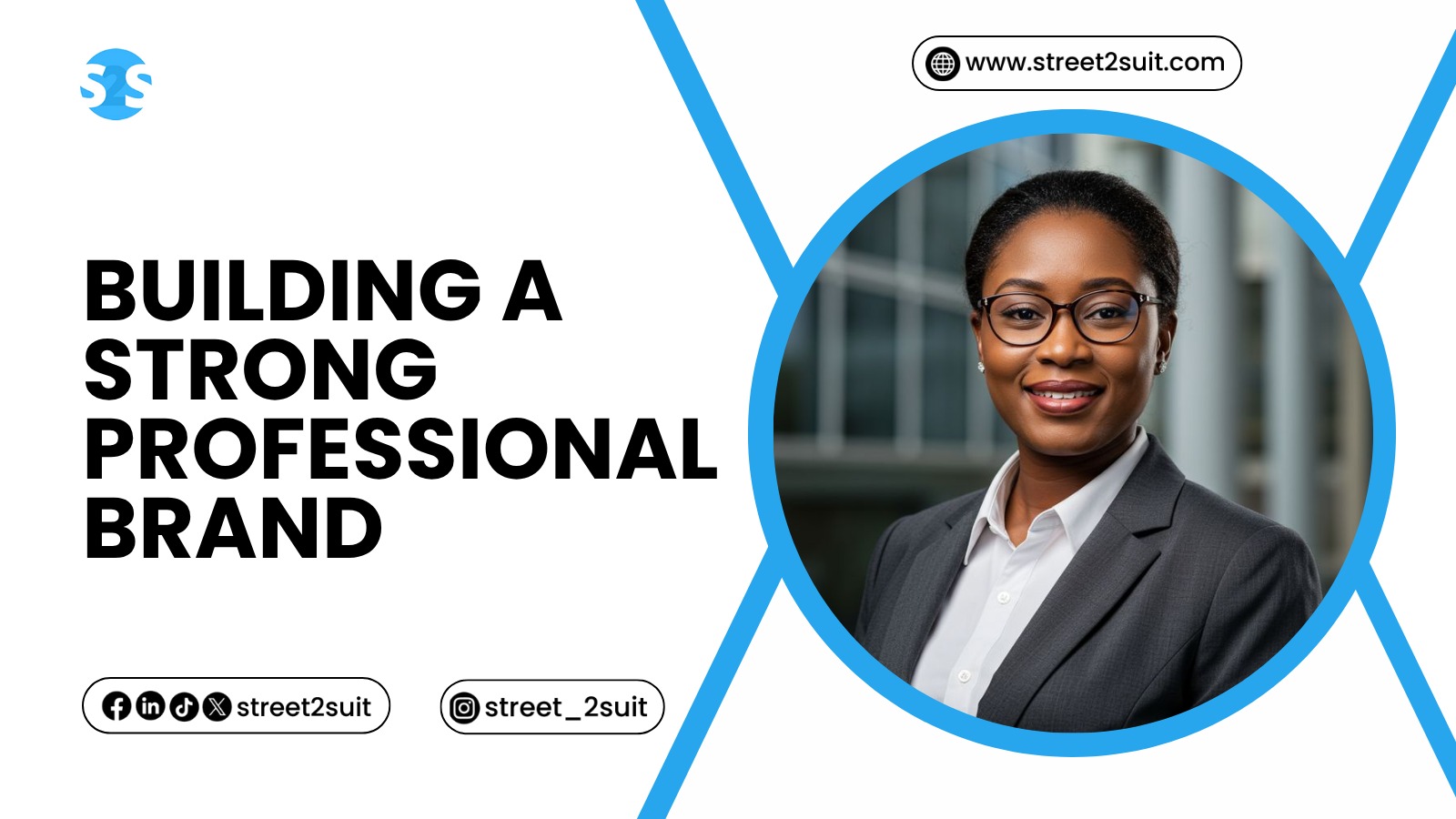Let’s be honest, “personal branding” often sounds like a concept concocted by influencers in cake shops, complete with ring lights and perfectly staged laptop shots. However, the reality is that building a strong professional brand isn’t an elitist trend; it’s a practical approach to ensuring people recognize your value and why it’s worth paying attention to.
Whether you’re a recent graduate, a seasoned professional, a freelancer, or someone trying to stand out in a crowded job market, your professional brand is essentially what people say about you when you’re not in the room. And trust me, people are talking. The question is: are they saying the right things?
So, what is a professional brand?
Your professional brand is the image and reputation you project in your industry or field. It’s not just your resume, your LinkedIn profile, or your business card. It encompasses your tone, work ethic, values, online presence, and the vibe you give off when you enter a room. Whether physical or virtual, it’s what makes you memorable, trustworthy, and ideally, the first name that comes to mind when an opportunity arises.
Now, let’s explore how to build a strong professional brand.
1. Know Thyself
You can’t create a brand if you don’t understand yourself. Before you start reworking your LinkedIn headline or redesigning your resume for the fifteenth time, take a moment to reflect. Ask yourself:
- What do I stand for?
- What are my strengths—not just what I can do, but what do I do better than most?
- What problems do I consistently solve?
- What values do I want to be known for?
Write these things down and consider discussing them with trusted colleagues or mentors. You might be surprised by what others already associate with you. It might be your ability to simplify complex tasks, your composure in high-pressure situations, or your exceptional presentation skills.
Clarity is the foundation of consistency, and consistency is the heartbeat of a strong brand.
2. Own Your Narrative
You have a story, yes, you do. It might not be filled with dramatic turns or glamorous job titles, but it’s yours. Perhaps you started in a completely different field before finding your passion, or maybe you are self-taught. Your unique journey isn’t a weakness; it’s the secret sauce of your brand.
Instead of hiding your journey in shame or glossing over it, share it with confidence and purpose. Let others see how your path connects to your passion and performance.
A strong brand is built not on perfection, but on authenticity. People are drawn to real stories more than robotic accomplishments.
3. Show Up Online Meaningfully
You’ve likely heard, “you are what Google says you are.” Harsh, but true.
Google yourself right now. What comes up? If it’s just a few random posts from your college days and an abandoned Twitter handle, it’s time to take action. The internet is your loudspeaker, it often serves as your first handshake with potential employers, collaborators, or clients.
So, build an online presence that reflects your brand:
- LinkedIn: This is non-negotiable. Use a clear, professional photo. Craft a headline that conveys more than just your job title. Share your accomplishments, insights, articles, and even struggles. Remember, people connect with people, not robots.
- Content: If you’re willing, write. Start a blog, post on Medium, or share short reflections on LinkedIn. You don’t need to sound like a thought leader; just share what you’re learning and doing.
- Engagement: Comment on others’ posts, celebrate your peers, and offer value to the conversation. Build your community.
In summary, show up. But don’t just seek likes, show up with purpose.
4. Let Your Work Speak (Loud and Clear)
Your brand isn’t just about how you talk about yourself; it’s also about the quality of your work. Whether it involves writing, design, coding, customer service, teaching, or managing people, the quality of your output is the backbone of your reputation.
So, deliver excellent work. When you do, don’t shy away from showcasing it. Share results, lessons learned, testimonials, and even behind-the-scenes stories.
If you’ve worked on something meaningful, don’t hesitate to talk about it. That’s not bragging; it’s branding. The goal is to leave behind a trail of excellence that others can reference, even when you’re not present.
5. Be Consistent (Without Being Boring)
Think of your favorite brands…Nike, Apple, Netflix. You know what to expect from them, and that consistency is no accident.
Your professional brand should offer the same clarity. Your values, tone, appearance, and attitude should align across different platforms and in real life. This doesn’t mean being rigid or fake, it means being recognizable.
Avoid sounding polished and philosophical on LinkedIn while being messy and rude in your emails. Don’t claim to value collaboration but then ghost on your team.
Professionalism is a long game. People notice patterns either good or bad. Make sure your pattern reflects who you truly want to be known as.
6. Network Like a Human Being
Networking isn’t a transactional activity; it’s about building genuine relationships. Engage with others in a meaningful way, share insights, and be a resource. Your professional brand will grow stronger when you foster real connections.
7. Stay Evolving
Your professional brand isn’t a static logo; it’s a living, breathing entity. As you grow, learn, and adapt, so should your brand.
Perhaps you started as a copywriter and are now focusing more on marketing strategy. Maybe you’re transitioning into a new industry. That’s perfectly fine. Make sure to update your bios, refresh your portfolio, and reintroduce yourself. Don’t hold on to an outdated version of yourself out of fear.
Strong brands do not stagnate, they evolve gracefully.
Conclusion
Building a strong professional brand requires self-awareness, a compelling narrative, meaningful online presence, quality work, consistency, and authentic networking. Embrace this journey, and watch how your professional brand evolves.
Receive the latest job and career updates in your inbox, every week!


